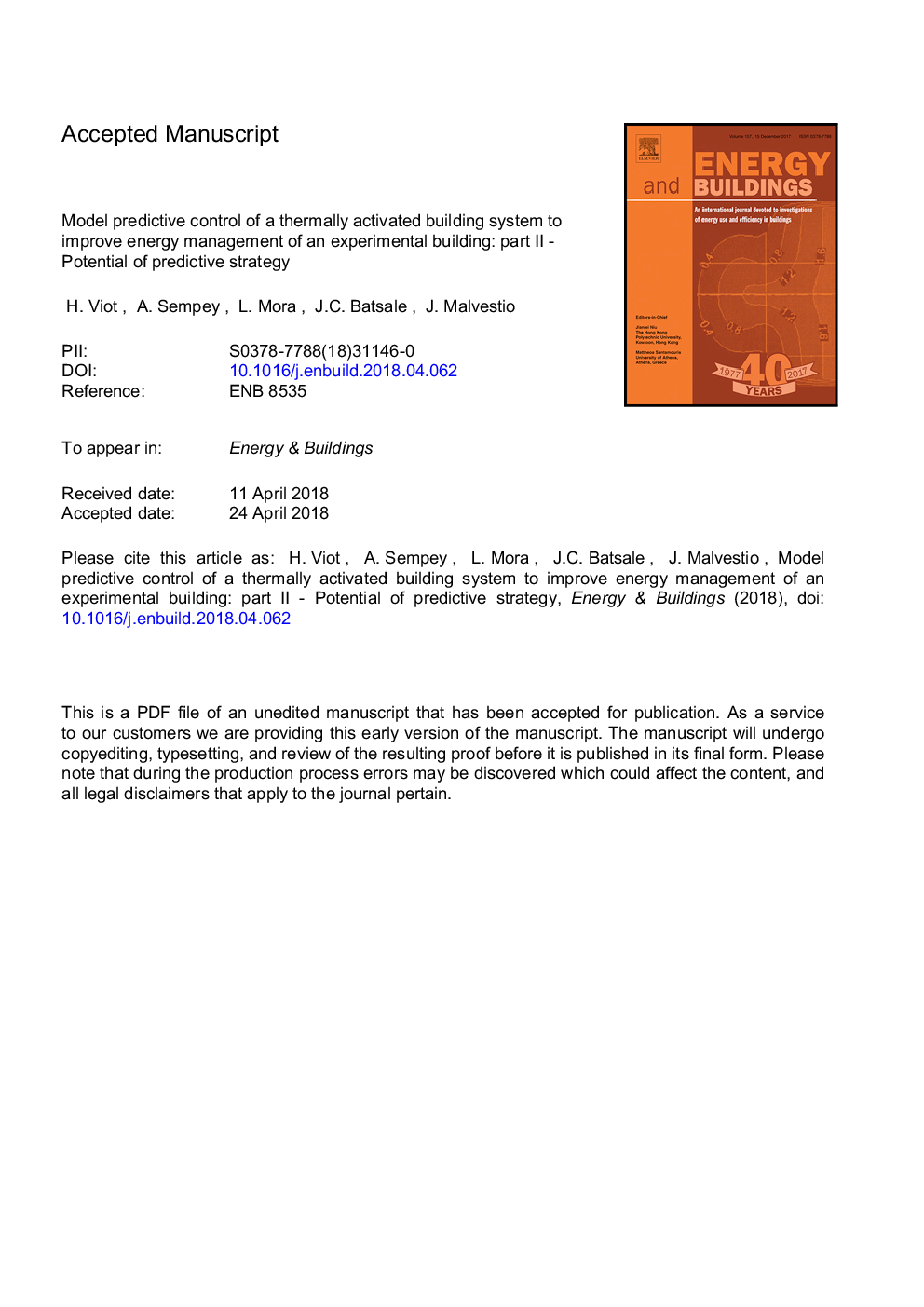| کد مقاله | کد نشریه | سال انتشار | مقاله انگلیسی | نسخه تمام متن |
|---|---|---|---|---|
| 6727642 | 1428918 | 2018 | 26 صفحه PDF | دانلود رایگان |
عنوان انگلیسی مقاله ISI
Model predictive control of a thermally activated building system to improve energy management of an experimental building: Part II - Potential of predictive strategy
ترجمه فارسی عنوان
کنترل پیش بینی مدل یک سیستم ساختمان حرارتی فعال برای بهبود مدیریت انرژی یک ساختمان تجربی: بخش دوم - پتانسیل استراتژی پیش بینی
دانلود مقاله + سفارش ترجمه
دانلود مقاله ISI انگلیسی
رایگان برای ایرانیان
کلمات کلیدی
موضوعات مرتبط
مهندسی و علوم پایه
مهندسی انرژی
انرژی های تجدید پذیر، توسعه پایدار و محیط زیست
چکیده انگلیسی
Thermally Activated Building Systems (TABS) are difficult to control due to the time lag between the control sending and the response of the indoor temperature. Energy management of systems having such a high inertia can be improved by optimizing the restart time thanks to both occupancy and weather anticipation. Predictive control is suitable for systems with numerous constrained inputs and outputs whose objective function varies over time such as buildings with intermittent occupancy. This work proposes to use a Model Predictive Control (MPC) for one TABS in particular: a floor heating system (FHS) of an experimental building. Conventional control techniques and a state of the art on the predictive control of FHS are presented. A complete control loop (sensor, actuator, controller) was implemented on an experimental room. The predictive controller that integrate the model selected in Part I is compared with two conventional control strategies. The energy saving potential of the predictive controller is confirmed by both local experimentation and simulation on three climates. The energy saving is close to 40% over the whole heating season with an improved or equivalent comfort situation compared to the other two reference strategies. The absolute gain is constant over the heating period but the most significant relative gains are obtained in the mid-season.
ناشر
Database: Elsevier - ScienceDirect (ساینس دایرکت)
Journal: Energy and Buildings - Volume 172, 1 August 2018, Pages 385-396
Journal: Energy and Buildings - Volume 172, 1 August 2018, Pages 385-396
نویسندگان
H. Viot, A. Sempey, L. Mora, J.C. Batsale, J. Malvestio,
